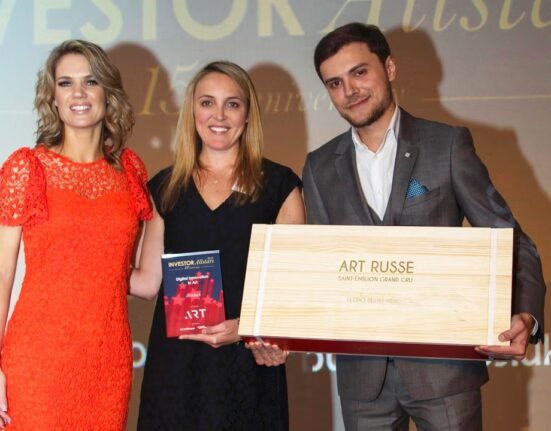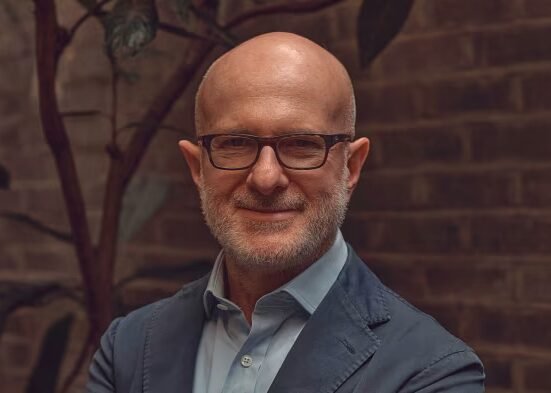Powering up small innovative businesses is a big piece of the development puzzle in Africa. However, linking innovators to funding and other types of support to drive employment and economic growth is easier said than done. At a recent learning meeting facilitated by Institute of Development Studies (IDS), we and 14 other participants working across different innovation contexts in Africa discussed how science, technology, and innovation (STI) can be embedded into local realities through meaningful relationships and locally-focused or ‘place-based’ interventions.

Our discussion highlighted how transformative journeys for innovators and investors are often rooted in shared outlooks and objectives. Building bridges between innovators and investors isn’t just about mapping data and track record – it’s about human chemistry, local knowledge, and sustained engagement.
This group ought to know, as we are all part of the UK government funded Africa Technology and Innovation Partnerships (ATIP), now in its sixth and final year, and for which IDS is learning partner. ATIP has been implementing a range of initiatives aiming to advance STI partnerships across Africa, some since 2019. The initiatives include Research and Innovation Systems for Africa (RISA) Fund, Global Alliance Africa (GAA), Sankore, and Funguo Innovation Program (Funguo). The topic of our meeting, a partners meeting facilitated as part of the ATIP/IDS Learning Partnership, was how ‘place-based’ innovation works.
Chemistry matters in place-based innovation
From Ghana to Tanzania, South Africa to Kenya, the meeting showcased a range of interventions that are connecting the dots between different organisations for ‘place-based innovation’ or innovation addressing local needs and aspirations. In all of these, one of the strongest common themes was the power of interpersonal chemistry. ATIP partners shared that successful matches between investors and innovators often emerged not from metrics alone, but from intuition, trial and error, and shared purpose. For example, Global Alliance Africa country technical leads shared how serendipity and chemistry drove the partnership between Kenyan farm management solutions provider, Plusfarm, and UK-based developer, Assentian. They tested the latter’s Agritrack platform in a pilot with potential to improve traceability and market access of the avocado supply chain in Kenya. RISA Fund and Funguo colleagues agreed that they too saw this repeatedly, for example in the case of RISA Fund-grantee Impact Investing Ghana’s Deal Source Africa programme and in the case of Funguo’s Tanzania Hubs Network.
Local backbones and open support spaces
While chemistry is key, it does not appear out of thin air. Local people and organisations who understand the context and the market make it happen. These are skilled, locally embedded actors who understand the nuances of their ecosystems and provide resources, facilitation, advice and visibility. They know the markets, have strong networks and relationships, and can spot critical actors and opportunities that outsiders might miss. An example is GAA’s country lead facilitating the partnership between e-waste management company WEEE Centre in South Africa, Swedish Research Institute, RISE, Swedish environmental waste management company, MILAV and UK-based Quinnovation. The partners co-developed processes for managing hazardous waste materials that WEEE Centre had been shipping abroad earlier (cathode ray tubes or CRT from old televisions and also printed circuit boards or PCBs). Once connected through GAA Kenya’s facilitation in response to WEEE Centre’s CRT reuse and recycling innovation challenge, they aligned on win-win solutions that benefited the local business and promoted circular economy. Following this successful pilot, Singapore-based Blue Planet Group invested in WEEE Centre to set up an urban mining centre to recover precious metals from CRT and PCBs.
Equally vital, especially for local innovators, but also investors looking for quality investees, are open support spaces— physical hubs, online and offline deal rooms, and virtual platforms that welcome innovators at every stage. These spaces build confidence and enhance visibility. Initiatives like Deal Source Africa run by Impact Investing Ghana, supported by the RISA Fund exemplify how the right pre- and post-transaction support can strengthen organic, trust-based relationships.
Sustainability takes time
But perhaps the most important insight from the group was this: sustainable connections require patience. Building trust, aligning goals, and making relationships last beyond the first introduction or deal is a gradual process, so engagement beyond the short term is key. Funguo implementers noticed this while bringing enterprise support hubs together over almost a decade. Doing the tough work of bringing these hubs together is promoting peer learning and collaboration and helping remedy a scenario where there is an explosion of one type of support to small ventures. However, it takes time. The experience of RISA Fund’s grantee Impact Investing Ghana too highlights this. While initially working to attract capital market investors and high net worth individuals, they have gradually shifted gears to bring banks’ debt funding into Deal Source Africa’s investor pool and expand resources for early-stage and small-sized businesses in Ghana.
Policy and momentum
Given how laying the ground for sustainable local innovation takes time, the group underscored the importance of ongoing support for building bridges among ecosystem actors. While events like Tanzania’s Innovation Week spark connections, it is regular and repeated engagement through these and other platforms that makes the connections stick. The same was noticed by GAA who facilitated small pilots of modest values and continued to engage with the players collaborating on the pilot which led to stronger collaboration between different STI actors and organisations. This means the pilots attracted follow-on investment and, in some cases, led to business acquisitions and scaling of products and services, for instance, across Eldoret city in Kenya’s Uasin Gishu County.
The ongoing collaboration could not sustain if regulators were not also made part of the conversation. To improve the chances that rules, policies, and funding systems are supportive of innovation, ATIP partners engaged policy actors at local and national level, sharing about progressive policy models and innovation infrastructure, as well as creating occasions for policymakers to interact directly with small businesses.
In short, for innovation support organisations, the key to lasting impact on inclusive growth lies in leveraging local knowledge, investing in strong support networks, and fostering long-term, trust-based relationships across the STI ecosystem.
With inputs from Alana Kruger, Sophie Bissett and Kirthi V Rao.
Alana Kruger is South Africa Country Lead, Global Alliance Africa.
Sophie Bisset leads MEL as a consultant for Global Alliance Africa.
Kirthi Rao is a Monitoring, Evaluation and Learning Specialist at the Institute of Development Studies.







